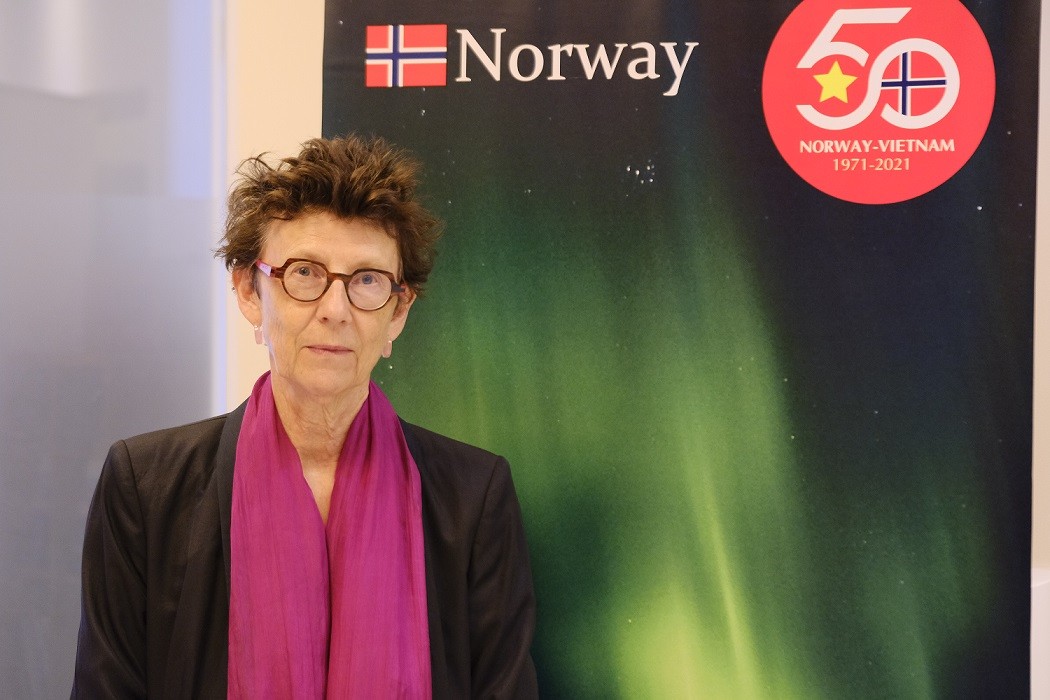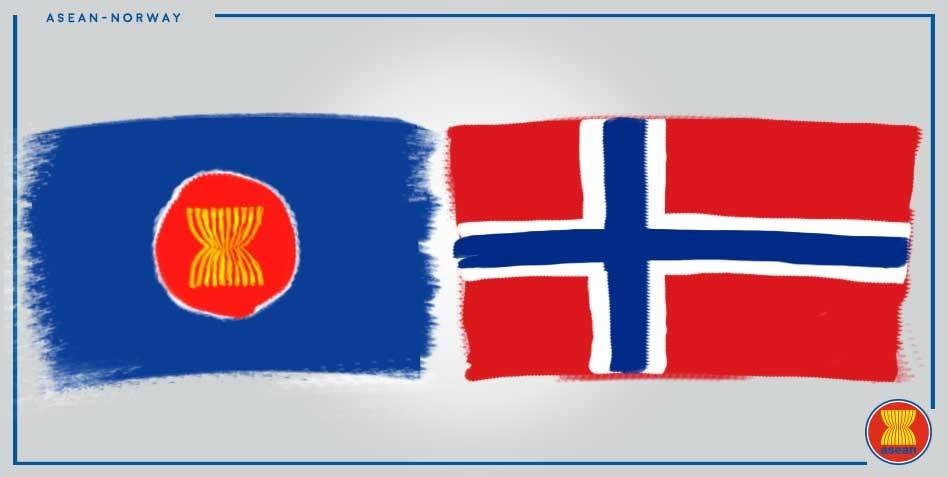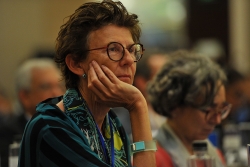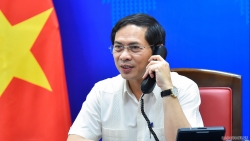
Norway's Ambassador impressed with Viet Nam's multilateral diplomacy
Latest
 |
| Norway's Ambassador to Viet Nam Grete Lochen. (Source: Norway Embassy to Viet Nam) |
With Norway being one of the ASEAN’s sectoral dialogue partner, how do you see the Viet Nam’s role in ASEAN, particularly after its accomplishment of the ASEAN rotating chairmanship in 2020?
Viet Nam has been seen as an active and responsible member of the regional bloc. I would use the word "impressive" to describe Viet Nam’s performance as ASEAN chair in 2020.
In the challenging context caused by the Covid-19 pandemic, we are really impressed by what Viet Nam has shown.
Viet Nam's commitment to enhancing ASEAN cohesion in dealing with Covid-19 and stepping up economic recovery and to giving ASEAN a more visible voice at the global level is important.
Viet Nam has brought this agenda into the United Nations Security Council (UNSC) through emphasizing the role of regional organizations in securing regional peace and security and promoting better cooperation and coordination within the UN.
As a non-permanant member of the Security Council in 2021, Norway has seen Viet Nam as being an important voice of ASEAN in the Council.
Viet Nam's successful chairmanship under challenging circumstances has definitely elevated Viet Nam’s position and reputation in the regional setting as well as among the broader international community. It demonstrated Viet Nam’s proactiveness, professionalism and the image of a responsible international partner.
Norway is a sector dialogue partner with ASEAN and we celebrated the 5th anniversary of ASEAN sector dialogue partnership last year. We were very pleased to see our common agendas being promoted through the initiatives on marine littering, renewable energy as well as the agenda on women, peace and security.
This cooperation between Norway and ASEAN will continue in the years to come with Viet Nam playing a proactive and visible role within ASEAN. I would also like to mention Norway’s milestone in its journey with the General Assembly of ASEAN Inter-Parliamentary Assembly (AIPA) last year when we were granted the observer parliament status under the AIPA chairmanship of Viet Nam.
Norway is serving as a non-permanent member of UNSC 2021-2022. How do you assess Viet Nam's efforts in this position during the 2020-2021 term?
We are very happy to work with Viet Nam in the Council for one year (2021). When it comes to our agenda at UNSC, Norway and Viet Nam share many thematic priorities such as security and climate change, conflict prevention and peace building, protection of civilians and women, peace and security.
Through many activities and efforts at the UNSC, Viet Nam has proven its proactive and dedicated role. You have worked with other members in the search for constructive and balanced solutions and broad consensus on resolutions and statements from the UNSC. The statements on the very concerning situation in Myanmar is a good example in that respect.
During the presidency of the Council, Viet Nam has had a very ambitious agenda with a series of events. I was very fortunate to be invited to attend these events online from Ha Noi and was impressed by the high-level political participation and the outcome.
Viet Nam should be proud of itself when it is now entering the last months of being a member of the Council. Like Norway, Viet Nam is a strong supporter of a well functioning multilateral system with the UN at its core. A rule-based international order and respect for international law is the best protection for medium-sized and small nations like Viet Nam and Norway.
 |
| Norway-ASEAN relationship will continue to develop for many years to come with the fact that Viet Nam has been playing an active role in ASEAN. (Source: ASEAN News) |
In the run up to the 2021 UN climate change conference (COP26), I would like to highlight climate change and security as a top priority of Norway as an elected member of UNSC.
Climate change is the defining challenge of our time. It is recognised as a ‘threat multiplier’ that will aggravate existing conflicts, and can also lead to new ones. Viet Nam is among the most vulnerable countries to climate change. The impact of climate change hits women and girls the hardest.
According to the United Nations International Children's Emergency Fund (UNICEF), one billion children live in "extremely high risk" countries. That is nearly half of all children in the world. Climate change leads to internal displacement of people as well as the risk of exodus of large numbers of migrants having lost their livelihoods.
It is vital that the Council has access to fact-based information on climate-related security risks in specific country contexts when it takes its decisions. Climate-related security risks should also be considered in all relevant mandates of UN peacekeeping and special political missions. This is a matter of conflict prevention. Addressing climate change risks and resilience must be part of efforts to maintain international peace and security.
UNSC members should make every effort to ensure the Council's leadership and fulfill the responsibility inherent in its mandate.
What do you think about the role of multilateral diplomacy in the context of traditional and non-traditional security challenges?
For the past 76 years, the UN has been a truly global organization. To successfully deal with any new global challenges, we must build on the UN legacy. However, today, rules-based international cooperation is under pressure. There is more instability and greater unrest in the international system. Some states are turning away from multilateralism. The norms, rights and values that are fundamental to us are being challenged.
Covid-19 has firmly established itself as the single largest security disrupter of this century in a non-traditional sense. It is vital in this time that we reiterate our common commitment to maintenance of international peace and security: upholding multilateralism and the UN-centered international system.
We must safeguard and strengthen the international order that has served us so well. We are dependent on, and best served by, a predictable, rules-based international order, which makes the world safer and more stable. We are also best served by a world order where small and large states cooperate to find common solutions, where major powers are prevented from acting unilaterally, and where right prevails over might. In fact, the very hallmark of multilateralism is to commit beyond one’s own self-interest.
Regionally, ASEAN continues to play a leading role. As a region, there should be ASEAN-led processes. In terms of the credibility and the reputation of ASEAN we all know that it’s also about deliverables, trust building and proactive adjustments to new challenges within and outside the organization. Although the ten countries have different backgrounds, together you are best positioned to achieve even more in the region. ASEAN has become an important regional platform for many external partners. Norway highly appreciates its cooperation with ASEAN and stands ready to support ASEAN’s efforts.
Let me conclude by reiterating that multilateralism and international cooperation are more important than ever to solve global challenges, traditional and non-traditional. I’m pleased that Norway and Viet Nam have strengthened our bilateral relations through our cooperation in different multilateral forums whether in the UN or in ASEAN.

| Norway Ambassador: Viet Nam has good strategies to response COVID-19 Sharing with TW&VR about COVID-19 response in Viet Nam, Norway Ambassador Grete Lochen highly appreciated the country's efforts and strategies. |

| Foreign Minister Bui Thanh Son calls for Norway’s investment Foreign Minister Bui Thanh Son called for more investment from Norway in Viet Nam during a phone talk with his Norwegian counterpart Ine Marie Eriksen ... |













